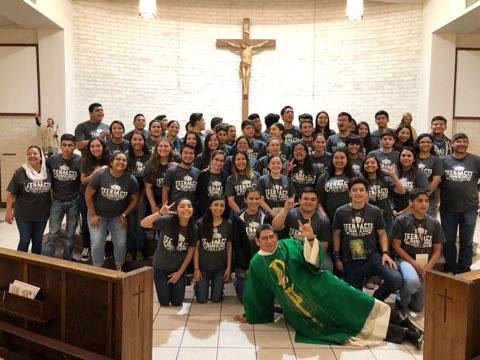Is. 66:10-14c; Ps. 66:1-3, 4-7, 16, 20; Gal. 6:14-18; Lk. 10:1-12, 17-20
“The Kingdom of God is at hand for you.” This promise given by Jesus is to those who welcome him and his “appointed seventy-two” into their home. Do we welcome his “appointed” servants, through the one Catholic and Apostolic Church into our home and do we rejoice in the heavenly Jerusalem? The Church is the heavenly Jerusalem on earth who provides us the “milk of her comfort that we may nurse with delight at her abundant breasts!” We nurse from the sacramental life of the Church as a mother to its people. As we welcome the church Christ is present in his body, blood, soul, and divinity.
The Kingdom of God is opened up to those who welcome the church into their hearts. How tremendous are the deeds of God in the church making of us a new creation through baptism, forgiving sins in reconciliation, curing the sick with anointing, exorcising demons, and confirming the faith to all who call upon the Lord. If we belong to Christ then we all share in his body called to be one in union with him and in his body. This is not some “spiritual thing” we feel but something tangible in the word of God, in the sacraments, in the Eucharist, and in the people. Jesus’ resurrection was a tangible body, not a spirit of illusion. He ate and drank and was touched. Let us welcome the kingdom of God in body, soul, and spirit. Are we not called to make of our bodies the temple of the Lord?
“The harvest is abundant” in our times as many leave the church and pews become empty. Others are simply raised not to believe but in themselves only. In an age of mass communication there are many competing voices making “connections” with the world around us and yet people find themselves more isolated, more in search of a purpose, and more confused on what to believe. They lack the one connection that matters most, God. Here is the dilemma, God works through others, through the church, through his messengers so we cannot be disconnected from others if we desire to get closer to him.
God works through a husband to his wife and through the wife to her husband. He works through parents for their children and through children to ponder the love of God when we gaze upon a child with love. God works through the stranger who is charitable to us and through us in our charity towards others. The kingdom of God is not a hardwired single line to heaven but even greater than an algorithm created by God to unite his kingdom from age to age, across generations, and when two or three are gathered together in his name.
“The laborers are few” as less respond to the call to the priesthood or religious life and the lay people simply say “I have no time…it is not for me to evangelize…it is not my business…I don’t feel comfortable”. If not us who? We all have a call to speak for the kingdom of God each according to the state of life we have chosen. It begins in our being, by being who we are that determines what we do. Our being is an authentic Christian centered faith, practitioners of what we believe, and a “naturalist” of the law of God. Our being is a manifestation of love for God. God is love and in his being we reside through the love of charity by giving of ourselves not just from what we have but from who we are. We are a child of God who is calling us to live in his love.
In each sacrifice of ourselves we bring God into the world. It is the testimony that Jesus left us on the cross. As he lived and died for us, we also live and die for love of God and others. This is the significance of this weekend for this country. It honors those who lived and died for freedom, the freedom we get to live this day. This is the significance of the lives of the saints who lived and died for Christ in serving others. This is the significance of bringing a child into this world who we live and sacrifice for because love makes the sacrifice meaningful.
The Kingdom of God brings us the “peace of Christ” as it takes possession of our hearts. This “peace” is the love of God who enters our hearts and dwells in us. Its control over our hearts is through the virtues we receive to strengthen our resolve to do good, to love our neighbor, and to labor in the kingdom of God not as “busy-bodies” but with a God-given purpose to “never grow weary of doing what is right” (2Thes. 3:13). Do all things with love and the kingdom is open to us this day.
When Jesus sent out the seventy-two to proclaim the kingdom of God they were to announce, “the kingdom of God is at hand”. He knew not all would welcome his messengers for he said, “I am sending you like lambs among wolves.” Evil exists in this world free to bring suffering, anger, jealousy, ridicule, and even death to the lambs of God but even death does not have the final word. It is in dying to ourselves that we are born into eternal life so fear not the evil that this world will bring upon us. God in his infinite mercy tells his disciples not to rejoice “because the spirits are subject to you but rejoice because your names are written in heaven.”




Recent Comments